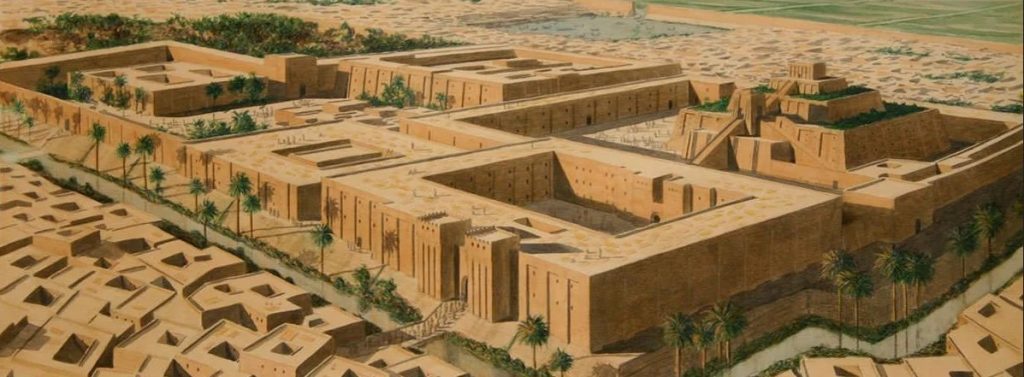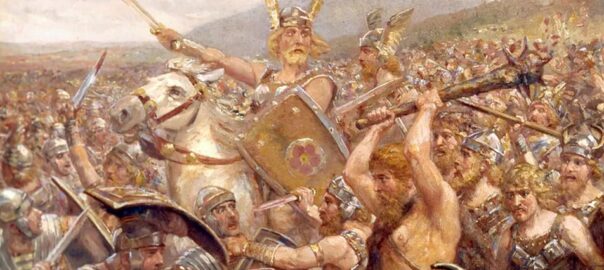Sumer, nestled in the fertile crescent of Mesopotamia (modern-day Iraq), stands as a towering figure in the tapestry of human history. Often hailed as the “Cradle of Civilization,” this ancient land witnessed a remarkable flourishing of culture, innovation, and organization between the 5th and 3rd millennia BCE, laying the foundation for much of what we consider modern society. From the invention of writing to the development of complex irrigation systems, the Sumerians left an indelible mark on the world.
A Landscape of City-States:
Unlike later empires, Sumer was not a unified political entity. Instead, it was comprised of independent city-states, each centered around a powerful temple dedicated to its patron deity. These cities, such as Ur, Uruk, Lagash, Eridu, and Kish, jealously guarded their autonomy and often engaged in territorial disputes and power struggles. These conflicts, documented in early writings, highlight the competitive spirit and dynamic political landscape of the era.
Groundbreaking Innovations and Inventions:
The Sumerians were prolific innovators, leaving a legacy of groundbreaking inventions that revolutionized daily life and paved the way for future advancements.
- Writing (Cuneiform): Perhaps their most significant contribution was the development of cuneiform, one of the earliest known writing systems. Initially used for record-keeping and administration, cuneiform evolved into a sophisticated system capable of expressing complex ideas and narratives. Clay tablets inscribed with cuneiform provide invaluable insights into Sumerian law, literature, religion, and daily life.
- Irrigation and Agriculture: Facing the challenges of a harsh climate and fluctuating river levels, the Sumerians mastered irrigation techniques, developing sophisticated canal systems, dams, and reservoirs. This ingenuity allowed them to cultivate the fertile land and produce surplus crops, leading to population growth and the development of specialized labor.
- The Wheel: While the exact origins are debated, the wheel’s early adoption in Sumer is undeniable. Initially used for pottery, the wheel was quickly adapted for transportation, transforming trade and warfare.
- Mathematics and Astronomy: Sumerian scholars developed a sophisticated number system based on 60, a system that still influences our measurement of time and angles. They made significant advances in astronomy, charting the stars and planets and developing calendars based on lunar cycles.
- Law and Governance: The Sumerians developed early forms of legal codes, such as the Code of Ur-Nammu, providing a framework for social order and justice. These codes offer a window into their understanding of social relationships, property rights, and punishment.

A Rich Tapestry of Culture and Religion:
Sumerian society was structured around a complex religious system. They believed in a pantheon of gods and goddesses, each associated with specific aspects of nature and human life. Temples, known as ziggurats, served as the focal points of religious life and were believed to be the dwelling places of the gods.
Sumerian mythology is rich with epic tales, such as the Epic of Gilgamesh, which explores themes of mortality, friendship, and the search for immortality. These stories provide insights into their worldview, values, and anxieties.
The Decline and Legacy:
Despite their remarkable achievements, the Sumerian city-states eventually succumbed to internal conflicts and external pressures. They were absorbed by the Akkadian Empire under Sargon the Great around 2300 BCE, marking the end of Sumerian political dominance.
However, the legacy of Sumer lived on. Their innovations, knowledge, and cultural traditions were adopted and adapted by subsequent Mesopotamian civilizations, including the Babylonians and Assyrians. From writing and mathematics to law and architecture, the Sumerians laid the groundwork for a brighter future, leaving an enduring contribution to the development of civilization as we know it.
Exploring Sumer Today:
Though the Sumerian civilization crumbled millennia ago, its influence continues to resonate. By studying their artifacts, deciphering their writings, and analyzing their innovations, we can gain a deeper appreciation for the ingenuity and resilience of these early pioneers, and understand the foundations upon which our modern world is built. The rediscovery and ongoing study of Sumer offer endless opportunities to unravel the mysteries of the past and appreciate the profound impact of this remarkable civilization on the course of human history.









